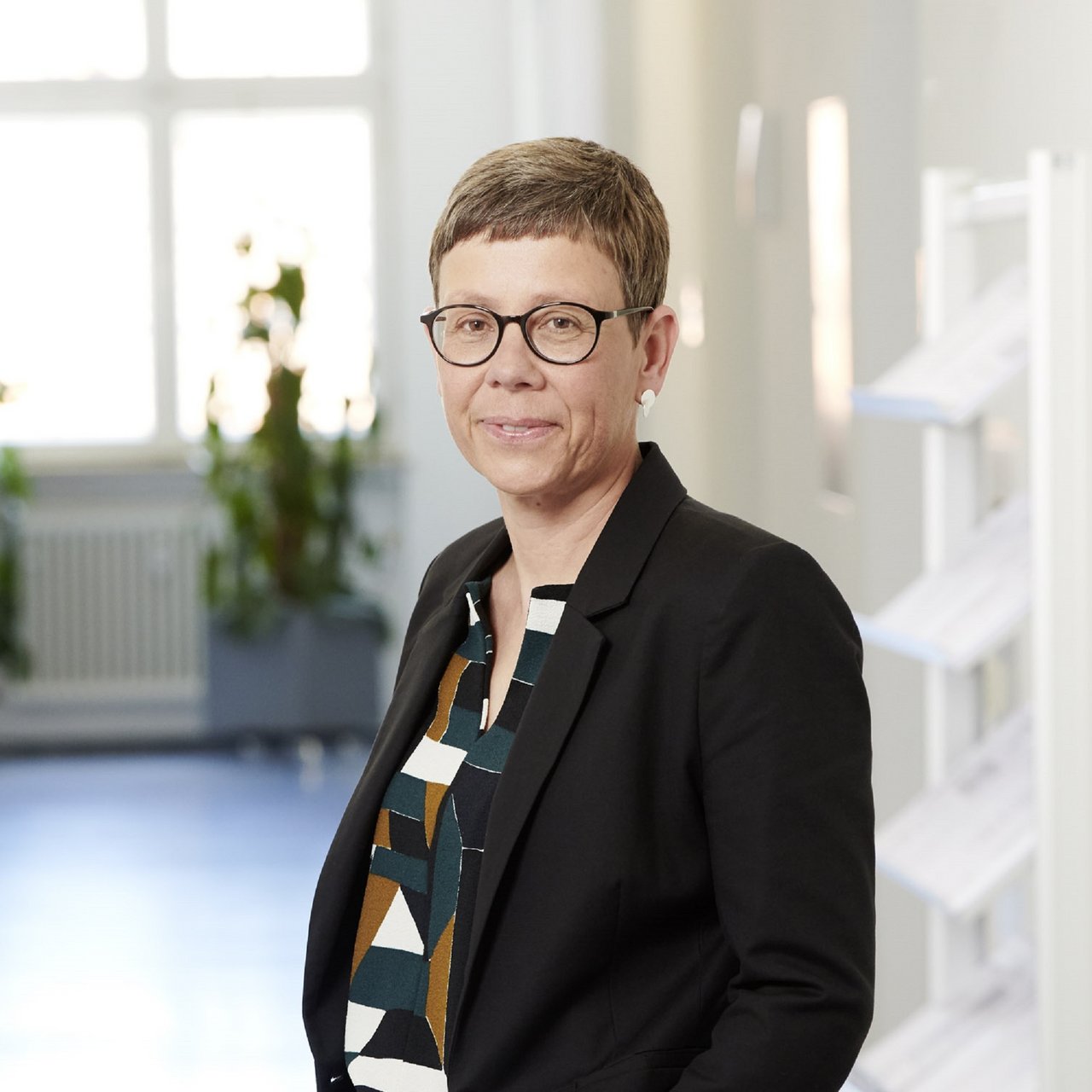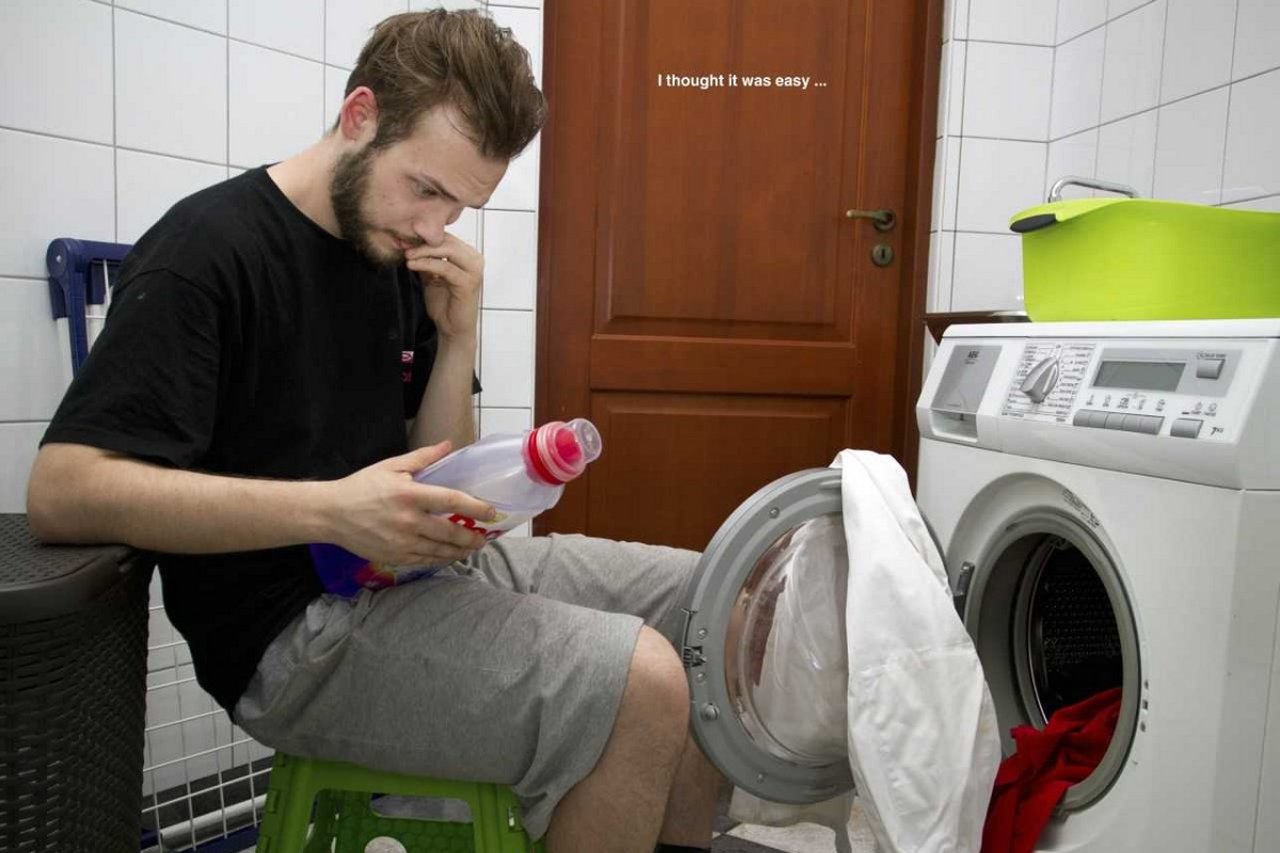Lives on Unequal Paths
Lives take different courses – in areas such as careers, health, and partnering up. How do people, organisations and societies develop? How does social origin influence educational and career trajectories? Top-flight European empirical social research on issues surrounding work and education is carried out at the University of Bamberg.
The researchers aim to understand people and societies more fully. Their work produces ideas that prove useful in policy formation and politics, business, and everyday contexts. Researchers in the disciplines of education, psychology, sociology, business administration, economics, political science, demography and statistics work collaboratively on interdisciplinary projects. They also cooperate with other research institutes in the region, chiefly the Institute for Employment Research (IAB) and the two independent research institutes affiliated with the University of Bamberg: the Leibniz Institute for Educational Trajectories (LIfBi) and the State Institute for Family Research (ifb).
The world of work in its digital form
Mona and Roy – 43 years old, married, with two children – both work in financial control. They manage enterprise budgets to ensure companies are financially successful. Roy is employed by a British company based near Essen, where the couple live. In the course of his work, he often speaks to his superiors in the UK and to representatives from international partner companies. “The digital transformation has made a lot of things easier. For example, I can exchange information with cooperation partners around the world in video conferences”, Roy explains.
The University of Bamberg is investigating how the world of work is changing as digital technology gains ground and what this means for employees. This work is being carried out jointly with IAB in Nuremberg, the research institution attached to the Federal Employment Agency. IAB has access to extensive research data. The two institutions conduct joint studies. And some academics conduct research at IAB and also teach at the university.
Professor Silke Anger holds the Chair for Economics, especially the Economics of Education at the University of Bamberg. She also heads the research area Education, Training, and Employment over the Life Course at IAB. One of her research fields centres on the effects of the digital transformation on the world of work – an issue that is also of interest to Professor Olaf Struck, who holds the Chair of Labour Studies in Bamberg. How many activities in an occupational field could potentially be automated and taken over by robots? The IAB’s Job Futuromat offers an overview.
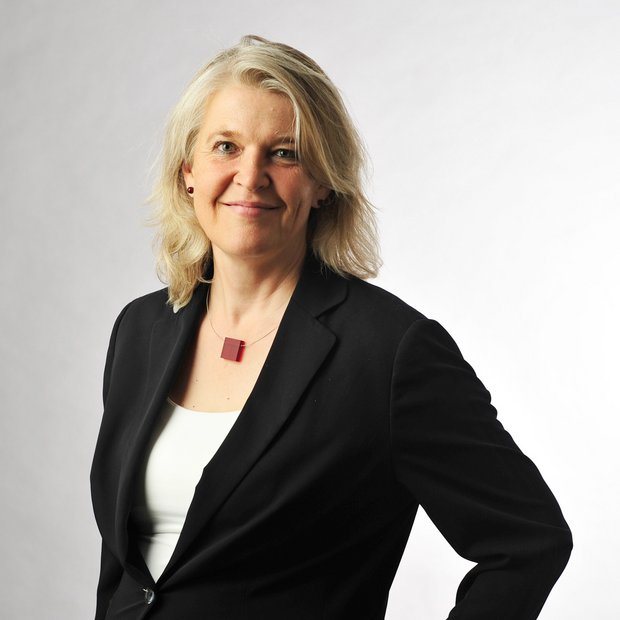
The impact on mental health
The advance of digital tech has increased the feasibility of working from home, and many meetings are now held as video conferences. But it also has ramifications for the health of employees. Professor Astrid Schütz’ research includes investigations of personality and interpersonal relationships in the work context, and she has been investigating how psychological well-being is impacted by technology. Her Chair of Personality Psychology and Psychological Assessment communicates the research findings to organisations and enterprises through training courses; Astrid Schütz established the Research Centre for Applied Human Resource Psychology (KAP) for this purpose more than 10 years ago.
Four questions for psychologist Professor Astrid Schütz
“Increased use of digital tech has triggered diverse changes in the world of work. The intensification of communication and the dynamics associated with its use demand considerable flexibility from employees and can be associated with increased stress levels. The term technostress has been coined to describe stress induced by increased exposure to modern information technologies, a phenomenon that can ultimately lead to emotional exhaustion and health challenges. Employees and managers can, however, develop strategies to exploit positive aspects of digital tech and, at the same time, avoid becoming overwhelmed by the new demands it places on them.”
“When we feel we do not have enough resources to cope with a situation, we feel stressed. Digital skills and self-efficacy expectations play a role here: people who feel that they can handle the information technologies available to them deftly and use them in a goal-oriented fashion are less susceptible to stress induced by digital work. Providing training in skills for handling digital tech is thus highly relevant."
"Control is another major issue: feelings of stress are reduced when people sense that they have some control over how information reaches them and can structure their behaviour – by, for example, only needing to open their email inboxes at defined intervals. At the other end of the scale, being expected to be available outside of working hours poses risks for health because it reduces the time available for rest and recreation. Boundaries matter in this context: people who struggle with setting clear limits on their availability after the end of the working day and communicating these limits are less capable of mentally unplugging from work and do not recuperate as well. It is hard for people to switch off when their thoughts in the evening are still focused on problems and unfinished tasks and they are on edge as they wait for their smartphones to ring or display push messages with new emails.”
“One important aspect is that strategies for self-management and managing one’s time matter. The more freedom and flexibility people have at work, the more important structuring and prioritising one's own tasks and finding efficient approaches to handling distractions becomes. Managers have a duty to model this behaviour and to enable employees to follow their example. Communication between managers and employees matters, too, as does communication within teams. Clear guidelines structuring communication are necessary: who can be reached when and how? Which specific means of communication should be used for what purposes? Some re-negotiation of processes and procedures may also be needed. Creating clarity and transparency is important to reduce uncertainty and cut down on potential flashpoints for conflict. Individual workers need to be aware of their own boundaries, communicate them and establish rituals for themselves that create distance from work – for example mindfulness exercises, doing something positive during breaks, or finding a symbolic way to mark the end of the working day.”
“Managers have a lot of influence on the health of their employees. For one thing, they are role models: when managers write emails at two in the morning and seem almost permanently available, this may convey to employees that the same is expected of them, too. What is more, managers can influence work design, resources, and processes. They are challenged to create health-promoting work environments by setting clear goals, providing feedback, making resources available, and establishing a good communication culture.”
“Manager’s actions in specific situations also influence the health of employees: research shows that negative leadership behaviour, characterised by denigrating or marginalising employees, can be detrimental to employee health. At the other end of the scale, transformational leadership that treats all employees with respect, shows regard for their individual needs, and communicates an inspiring vision can boost employees’ job satisfaction, productivity and health. Last but not least, managers can only support the health of employees well when they take care of their own health and have sufficient resources available. Building up relationships and establishing and supporting a positive team atmosphere in which people feel valued is a particular challenge when managing remote or virtual teams, but all the more important in that context.”
The international labour market
Mona comes from the Ruhr area and worked in Essen in an assistant role with an auditing consultancy from 2007 to 2011. She then spent almost four years working with an organisation in Israel as a controller where Roy worked as a financial analyst. That is where the two of them met. From the very beginning of their time together, Roy’s mother tongue, English, was the language of their communication. Roy grew up on the multicultural island state of Singapore. As well as being familiar with Singapore and Israel, he has also experienced life in Australia and Canada. He has lived in Germany since 2016. “As I was already familiar with different countries and with Western culture, moving to Germany wasn’t a culture shock for me”, Roy says, smiling. “The hardest thing for me at the beginning was learning German. Being able to practise the language at work was helpful and so was being married to a native speaker.”
Such international life trajectories are an important research topic. The effects of globalisation on the world of work are of interest to researchers in disciplines like sociology or business administration. For instance, Professor Cornelia Kristen, an expert in social stratification from the Chair of Social Structure Analysis, has investigated a subfield of social inequality: migration.
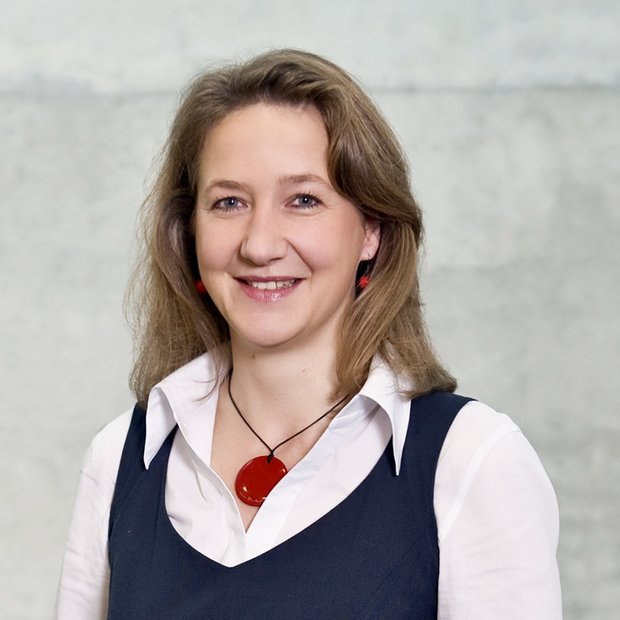
Careers and stays abroad
Migrants who emigrate voluntarily and on their own initiative also have support needs. Companies and organisations that wish to retain employees from abroad in the long term must put some effort into meeting their needs. Business administration specialist Professor Maike Andresen has international aspects of human resources management as one of her chief research interests. She initiated, designed and coordinated the large-scale EU project GLOMO – Global mobility of employees from 2018 to 2021 to examine connections between working abroad and career development in an interdisciplinary way. Four GLOMO sub-projects were tackled by project staff members at the University of Bamberg including Anh Nguyen. The overall GLOMO project involved fifteen sub-projects at eight European partner institutions with the involvement of eleven companies and four million euros of research funding.
Four questions for business administration specialist Professor Maike Andresen
“Self-initiated expatriates, in other words people who go abroad and take up a new job there on their own initiative, often have global skills and valuable social networks at home and abroad. These enable them to work successfully on making their employers’ international business operations run more easily and more smoothly. But only a few organisations apply specific diversity strategies and human resources management practices to attract, retain and manage foreign workers. To benefit from international diversity, more tailored support for foreign workers needs to be provided.”
“Self-initiated expatriates include people from all age groups and career stages and thus represent a heterogeneous group with very different requirements. Reaping benefits from international diversity requires tailored support for foreign workers that can include assistance for family members and spouses, help with taxes and banking, and support with personal issues such as balancing work with their personal lives and well-being."
"To help self-initiated expatriates to identify closely with their enterprises and with enterprise goals and values, managers with responsibility for human resources can emphasise the links between the needs of the enterprise and the needs of international staff members. This fosters the loyalty and dedication of international staff to the company. Career support and assistance with settling into a new environment are key to embedding in organisations successfully and forming interpersonal ties in the workplace. These in turn boost career satisfaction and expatriates’ intentions to stay, especially in situations in which self-initiated expatriates have only a small number of host-country nationals in their networks.”
“Career support can be provided by, for example, establishing a mentoring system, offering development and learning opportunities, giving people autonomy and challenges at work, and making opportunities for promotion available. Other forms of support include language and intercultural training, information on social support services and resources, or memberships in business associations and business clubs to help self-initiated expatriates build up professional and personal networks. Career counselling for spouses relocating along with employees and even support for the relocation of family members to the host country can be just as important, too. This can help self-initiated expatriates develop community ties and feelings of belonging.”
“It is important that self-initiated expatriates are socially integrated into the environments in which they live. Being able to draw on personal resources opens up scope for successful performance in the work environment. Investing in establishing local community networks is therefore particularly important, be it through children’s kindergartens or schools, sports clubs or building circles of friends – which include local people, especially, and not just other expatriates.”
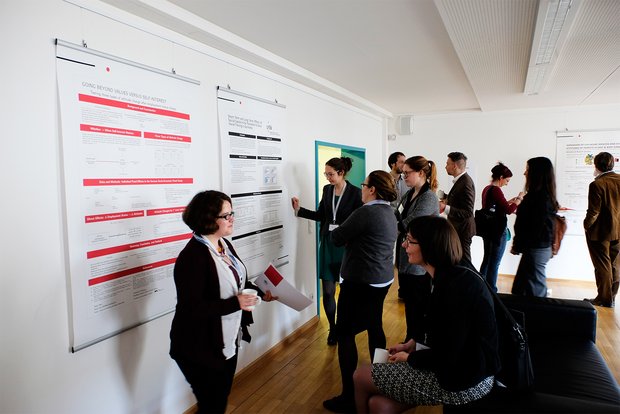


An international graduate school
Michael Gebel, Cornelia Kristen, Steffen Schindler, Olaf Struck and Sabine Weinert are all among the approximately 30 professors who supervise projects at the Bamberg Graduate School of Social Sciences (BAGSS). BAGSS provides a structured international working environment for highly qualified doctoral candidates. Its focus is on the empirical social and human sciences. Founded in 2010, BAGSS has since expanded into an international graduate school thanks to 8.6 million euros in funding from the Excellence Initiative of the German federal government and the federal states designed to strengthen cutting-edge research at universities between 2012 and 2019. Since then, its work has continued with funding from the Free State of Bavaria.
As of 2021, 67 BAGSS alumni had already completed their doctoral projects and another 87 doctoral students were still working on their dissertations. “This funding running into millions led to our social science research becoming clearly visible internationally”, comments Professor Thomas Saalfeld, Vice President for Research and Early-Career Scholars, who headed BAGSS for 10 years. “BAGSS has produced numerous top-class doctorates and publications in specialist international journals. Some graduates have already been appointed to professorships, for example Dr. Gundula Zoch, now an assistant professor for the sociology of social inequality at the University of Oldenburg.”
Initiatives like BAGGS bring international expertise to Bamberg. And in the other direction, many Bamberg scholars are now involved in projects around the world and enjoy recognition for their work. They include researchers who have been awarded internationally prestigious ERC grants and Marie Skłodowska-Curie grants by the European Research Council. Longitudinal studies that describe and explain educational trajectories and transitions are a particular Bamberg speciality.
Dividing up work and family responsibilities
Roy and Mona's two sons are four and six years old. The younger child attends kindergarten and the older one has started school. From 2015 to 2019, Mona took care of the children and the household and did not work outside the home. Since then, she has been employeed part-time – currently in the finance department of an organisation in Frankfurt. “I am still the children’s primary caregiver and do most of the household chores,” Mona says. Roy, who works full time, looks after his sons particularly intensively at the weekend so that he can spend as much time with them as possible. He also puts them to bed every night.
Examining how paid employment and care responsibilities are divided up in families is a major topic for family research at the University of Bamberg. Diverse projects are pursued, and opportunities are embraced for cooperation with the State Institute for Family Research at the University of Bamberg (ifb), which is headed by Professor Henriette Engelhardt-Wölfler. It is the only social science research institute in Germany dedicated solely to family research. The institute pursues interdisciplinary research that looks at what families need, how they shape their lives, and how their circumstances change over time. The remit of ifb encompasses three areas above all else: fundamental research, for example on how families are structured and develop; applied research, for example the evaluation of family policy steps taken; policy advice for organisations including ministries, associations, and local authorities.
Dr. Florian Schulz from ifb, Professor Thomas Leopold and Dr. Jan Skopek have investigated how the hours spent on household work by men and women have changed. Their results show that women still spend significantly more time on housework than men, but that this inequality between the genders changes over the life course. The researchers’ observations support the hypothesis that the genders are increasingly converging in the area of unpaid work.
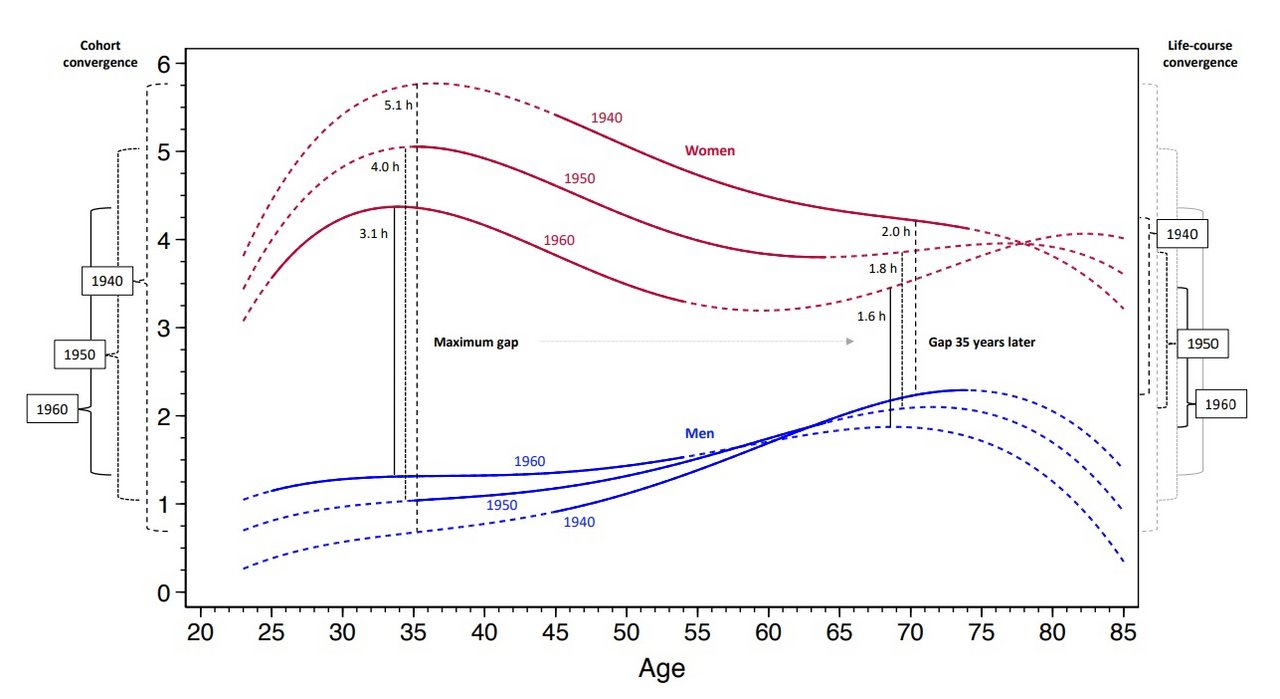
The development of working hours over the years
Current division of household responsibilities | Action recommendations from ifb |
Gender differences relating to the levels of education reached have almost ceased to exist. Women nevertheless perform more unpaid housework than men in almost all life phases. | ► Structural conditions need to change so that women and men can realise their desire to share work fairly as partners. |
How much time do men and women spend on housework? The differences between the genders decrease over generations, but the process is very slow. | ► Family education and marriage counselling or counselling for couples can support women and men as they arrange how to divide tasks up between them. Such provision can also encourage couples to put in place the system they really want. |
Once they start families, couples usually find themselves unable to realise their plans to divide work in the home equally. They drift into traditional patterns of dividing up work. | ► Initiatives designed to promote returning to work after having children must keep the typically unequal patterns of housework distribution in mind. |
People already internalise and live out traditional gender roles in childhood and adolescence. | ► Gender-sensitive education is also needed to give children and young people opportunities for reflection on gender inequalities and stereotypes. |

Is having children contagious?
While the idea may sound like a joke, it is being investigated in all seriousness in Bamberg, where researchers have joined forces to examine the strength of the “contagion effects” of different networks such as people’s family and workplace networks. Summarising the study results, demography expert Professor Henriette Engelhardt-Wölfler says: “Having a child becomes more likely when siblings or colleagues have one” and “In addition, we were able to demonstrate spillover effects across network boundaries.” These unfold in a kind of chain reaction: once a person is “infected” with the desire to have children by colleagues, they in turn start to influence their siblings, who then also infect their social contacts.
![[Translate to English:] Die ganze Familie fährt Fahrrad.](/fileadmin/_processed_/c/9/csm_Bildung_Arbeit_Motiv-Fahrradtour_8b01a713c0.jpg)
Early childhood
“We want to raise our children in a balanced way”, Mona tells us. “That means nurturing their intellectual, moral and spiritual development and fostering good habits around exercise and healthy eating.” For example, Mona and Roy read books to their sons and do sporty activities like biking and swimming with them. The couple also involve their children when contributing to community activities in their neighbourhood. Their sons are growing up bilingual: Roy speaks English with them and makes sure they answer him in the same language; the children learn German from Mona and from their everyday lives in Essen.
The first few years of life are especially decisive for children’s development. Their circumstances at this point in life have a substantial impact on their subsequent life trajectories, be it in relation to educational and career paths or to health. Many researchers at the University of Bamberg draw on data from the National Educational Panel Study (NEPS) to probe links between individual factors and developments later in the life course.
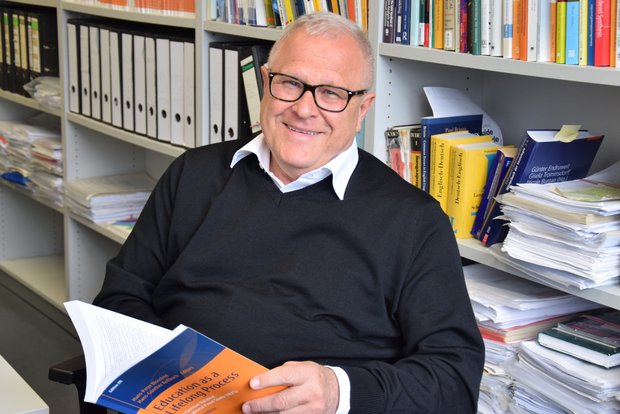

The National Education Panel
Renowned sociology professor Hans-Peter Blossfeld created a beacon for research in 2008 in Bamberg, the National Educational Panel Study. NEPS began as a project with third-party funding at the Institute for Longitudinal Educational Research (INBIL) at the University of Bamberg. Until 2012, Hans-Peter Blossfeld remained at the helm of NEPS, which collects longitudinal data on education processes, decisions and outcomes across the entire lifespan. In 2014, NEPS became the linchpin of the newly founded Leibniz Institute for Educational Trajectories (LIfBi).
Today, the university still maintains close links with this associated but independent institute. LIfBi’s current director, Professor Cordula Artelt, notes that “NEPS is one of the largest longitudinal education science studies in the world. We provide essential, supra-regional, and internationally significant research-based infrastructure for empirical educational research.”


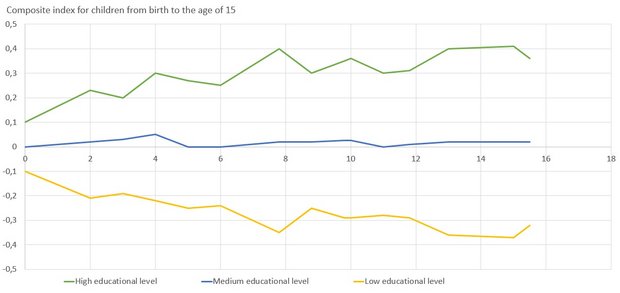
Differences at an early age
Inspiration for the NEPS studies came, among other sources, from the longitudinal BiKS study undertaken in Bamberg. The BiKS research group (concerned with educational processes, competence development, and the formation of educational decisions at the preschool and school levels) carried out the first comprehensive large-scale study in Germany that investigated how competence development and experiences in the family, preschool and school early in life affect children’s later development. The group was composed of researchers from the disciplines of education, psychology and sociology.
One of the findings this effort generated was that education-related skills differ significantly even when children are only three years old: boys and girls from more educated families knew many more words than those from families of lower educational status. They also had a better understanding of complex sentences as well as of numbers and shapes. According to developmental psychologist Professor Sabine Weinert, the data also show that the children made major advances in their development during their preschool years, but that the divergence in children’s education-related skills nevertheless remained very stable after children started school and proved to be significant for their further intellectual, linguistic, socio-emotional and academic development. The obvious conclusion was that tackling educational inequality must begin at preschool level or even before preschool.
Indeed, results from a study by Jan Skopek at Trinity College Dublin and other researchers show that children’s skills start to diverge by as early as a few months after birth. Skopek was the head of the NEPS Data Centre from 2010 to 2013 and continues – like many other international researchers – to use NEPS data.
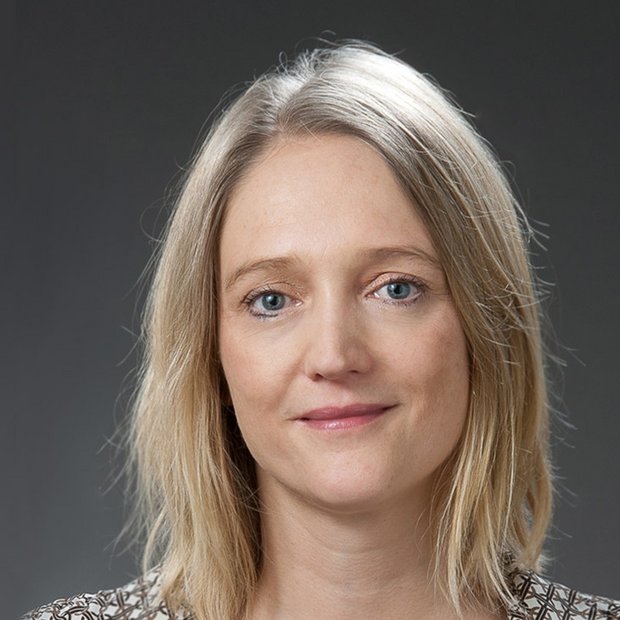
Enabling equality of opportunity
The Chair of Early Childhood Education conducts research on fostering and supporting development during early childhood, a crucial phase in children’s lives. Topics tackled by the team include investigating the effects of the quality of early childhood education in families and day-care centres on children’s development. The underlying aim is to improve the quality of early education facilities. A focus is also placed on preventing educational inequalities in early childhood. For example, Professor Yvonne Anders, who holds the Chair of Early Childhood Education, evaluated the project Chancenreich with a team of researchers, a project that supports families from all social strata with parenting young children.
Five questions for educator Professor Yvonne Anders
“The Herford project Chancenreich was developed by the Carina Foundation in cooperation with the City of Herford in North Rhine-Westphalia. It is being delivered by an association, Chancenreich Herford e. V. It takes up research findings from international model projects and provides families with opportunities to voluntarily avail of support with care and early education for newborn babies and young children. Chancenreich is open to all parents of newborns in Herford.”
“Findings from practice demonstrate that services that can be freely accessed by families from all social strata are more often used by middle-class families. Finding ways to reach families facing disadvantages is a major challenge. One of the goals of the Chancenreich project is to secure participation from these families. To this end, the package that Chancenreich offers families includes family visits, a parenting handbook, free parenting courses and a financial bonus of 500 euros for completing a set of modules defined in advance. This approach is still unique in Germany.”
“My colleagues and I have been monitoring and evaluating the project for several years. We conducted a quasi-experimental longitudinal study looking at parents and children participating in the Chancenreich project and comparing them with a control group.”
“Chancenreich has successfully – more successfully than other approaches – reached out to disadvantaged families. This is reflected, for example, in the high proportion of families involved that have a migration background and in the considerable proportion of parents receiving unemployment benefit.”
“One difference which has become apparent is that parents in Chancenreich families rate the social support they receive better than parents in the control group. They attach greater importance to attending health screening tests for children. And lower social inequality is apparent in attitudes towards screening (appraised based on the educational backgrounds of children's mothers).”
“From the perspective of educators in day-care centres, problematic behaviour is rarer among children from Chancenreich families. From the perspective of parents, participating children have better everyday skills. The children use more vocabulary overall in comparison with a sample of children of similar ages from the evaluation of the federal programme Schwerpunkt-Kitas: Sprache & Integration (a programme geared to improving language education in day care centres). Courses designed to strengthen the attachment of parents and children and their relationships have proven particularly effective. The results of the longitudinal study show that effects achieved here are still stable two years later. About 60 per cent of all parents with newborn infants participate in the project.”
“The Chancenreich project is exceptional. It has been developed on the basis of research and delivers high quality content. At the same time, it has also very successfully reached out to and been accepted by parents. Approaches that achieve both these things at the same time are few and far between. It is, moreover, among only a handful of projects that have been studied by comprehensive scholarly research drilling right down to the level of the skills that children develop. The Chancenreich project continues to evolve all the time. That can be seen in the development of an app for parents with a specific component fostering children's linguistic development that is currently also being evaluated to see how much acceptance it garners and how well it works.”
School
Starting school marked the beginning of an exciting new life phase for Roy and Mona’s elder son. Now in his first year at school, he is currently learning ordinary everyday behaviours: concentrating in class, doing homework self-reliantly, following rules. In maths class, he is learning to add numbers up to 20. And in German, he has learnt his first letters. Now he is practising sounds and syllables. “He sees the world with different eyes since he started school”, Mona comments. “For example, he sometimes stays standing at the traffic lights for a while so he can read a street sign.” Because the boy is having so much fun with his freshly acquired reading skills, he regularly reads texts aloud to Mona.
The Chair of Educational Research investigates the learning outcomes achieved by preschool and school-age children. The Chair is well-connected with disciplines including psychology, sociology, educational science and subject-specific teaching and learning methodologies. Students in its master’s programme benefit from these interdisciplinary links and the department’s strong focus on research – an uncommon combination at German universities. The topics covered by the department’s research include reading skills.
Learning to read – a long process
Children develop their first reading skills while they are still in preschool and then in primary school. “The overall process of learning to read is very long-drawn out”, as Professor Maximilian Pfost from the Chair of Educational Research explains. At the beginning of the process, children learn single words. They move from there to reading faster, understanding texts more fully and developing strategies for handling tricky passages.
The PISA study measures the reading skills of fifteen-year-olds around the world with standardised tests every three years. In 2018, German students scored 498 points, which was above the average figure for OECD states. But around one fifth of German students were barely able to grasp and reflect on the meaning of texts. Social origin and reading literacy are correlated in Germany to a strikingly strong degree. Young people from families with a low level of education often have poorer reading skills.
“The first differences develop very early”, says Maximilian Pfost. “Simplifying somewhat, parents from milieus with a higher level of education place a higher value on making sure their children have fun with reading. They imitate different voices when reading aloud, for example. Parents with a lower level of education often don't enjoy reading very much themselves.” Enjoyment of reading and reading skills are linked: people who read more are also better at reading, and better readers take more pleasure in reading and are more likely to read more. Maximilian Pfost has a helpful suggestion: “The best way to foster reading skills is to immerse yourself in stories together with children and to talk about them – at home or in kindergarten.”
This recommendation is also endorsed by LIfBi’s director, Cordula Artelt, who holds the Chair for Educational Research in Longitudinal Section at the University of Bamberg. She highlights the importance of good reading skills for navigating the new world of digital tech skilfully. “Reading has changed fundamentally in the last 20 years”, Cordula Artelt observes. “The internet constantly confronts us with different texts – some based on facts and others more on opinions. Children and young people have to learn how to evaluate sources and tell truths from falsehoods. Who wrote a text?”
Cordula Artelt considers it vital that school students should learn to take a critical approach towards the texts they read. As well as skills in reading digital texts, students also need a broader base of skills: “Digital skills need to be anchored in the curricula – both as part of the essential core curriculum and across different subjects.” Cordula Artelt is not proposing additional computer science lessons here, but the integration of digital skills into school subjects. In history lessons, for example, young people could learn to categorise and evaluate online sources.
Education and didactics researchers also study schools and teaching and learning processes. They look particularly at teachers and teacher education. The issues with which they concern themselves include inquiry into areas like how student teachers can be made ready for encounters with diversity in the classroom: School students have differing ethnic backgrounds, prior knowledge, genders, and levels of motivation and performance, and these are far from the only differences teachers encounter.
In order to sensitise teachers to diversity issues, primary teaching expert Professor Miriam Hess and researcher Verena Keimerl are carrying out four teaching projects and evaluating them with scholarly rigour. These sub-projects form part of a larger project designated ProHet (Professionalisation as it relates to approaches to heterogeneity and diversity). This, in turn, is a building block in the quality initiative WegE that is working to improve teacher education at the University of Bamberg and give it a distinctive profile. The letters WegE stand for Wegweisende Lehrerbildung, pathbreaking teacher education. WegE is receiving 6.8 million euros in funding from the Federal Ministry of Education and Research (BMBF) as part of the Qualitätsoffensive Lehrerbildung (Quality Offensive Teacher Education) programme.
![[Translate to English:] Mona sitzt in einer Vorlesung, Roy arbeitet mit Kommilitonen an einem Schreibtisch zusammen.](/fileadmin/_processed_/e/e/csm_Bildung_Arbeit_Motiv-Studium_d255d8c63d.jpg)
The transition from education to work
Over 20 years ago, when Mona and Roy were still at school themselves, they had to make decisions about the kind of careers they wanted to pursue. Mona’s parents had both taken vocational education and training options: her mother had become a nurse and her father a TV and radio technician. Mona was the first member of her family to pursue an academic degree. She graduated with a degree in business studies. Roy also chose to study in this same field. In his family, his mother had taken a teaching degree and his father had trained as an insurance salesman.
Close links exist between social origin, educational attainment, and success in the labour market. Sociologists Professor Corinna Kleinert and Professor Steffen Schindler have been investigating the effects of social inequalities on the life course. Both hold professorships at the University of Bamberg. Corinna Kleinert is also Deputy Director of LIfBi. By clarifying the role played by social inequalities and demonstrating how they arise, this research provides policymakers with a basis for fresh decision-making.



Unemployed young people
How are individuals affected by cultural factors, family influences and politics? Professor Michael Gebel, the holder of the Chair of Sociology, especially Methods of Empirical Social Research, is interested in these issues and has conducted highly successful international comparative research on them. He secured a prestigious ERC Starting Grant and 1.4 million euros of research funding from the European Research Council (ERC) to investigate the impact of temporary employment.
An insecure labour market, time-limited employment, and unemployment have also been examined by the international research project EXCEPT – Social Exclusion of Youth in Europe with the involvement of Bamberg researchers Michael Gebel and Christoph Schlee. The research team analysed large-scale surveys conducted across Europe and conducted 400 in-depth interviews with young adults aged between 18 and 30 in nine Western and Eastern European countries. Young people are especially likely to be affected by unemployment and labour market insecurity. What impact does this have?
“Analysing major population surveys revealed similar patterns in all the countries studied,” Michael Gebel explains. Unemployment, for example, feels worse than temporary employment to those affected. The negative effects of unemployment are mitigated more in countries with open education systems that give people second chances to obtain educational qualifications. Negative effects also proved less marked in states where unemployed people receive greater financial support from the government.
Deeper insights were gleaned from the interviews. Christoph Schlee notes that “unemployed young people in Germany generally tend to perceive their situation negatively”. “People who have been unemployed for some time often feel intense frustration and have existential worries about their future lives. This contrasts with the optimism of recent graduates who expect their unemployment to be merely transient.” The study shows that this optimism is not misplaced; people with higher education have better chances in the labour market in Europe.
The research findings have been made available to political stakeholders including the European Commission. The distinctive profile of this specific project relates to more than its encompassing multiple different countries; as Michael Gebel stresses: “The fact that we have given young adults a voice sets this project apart.” Young people were afforded opportunities to contribute their views in the interviews, at discussion events and via a photo competition.


Tablets in vocational schools
Findings from sociological research can produce new research questions for the education sciences, for example about whether teachers can design learning in the classroom in ways that compensate for the effects of social inequalities. Business education expert Professor Karl-Heinz Gerholz has, for instance, been analysing how teachers can design digital learning at vocational schools effectively.
He has registered that students with lower educational qualifications have more difficulty following tablet-based lessons. But at the same time, he notes that “previous studies have shown that motivation and learning outcomes improve for all students at vocational schools, regardless of their level of educational attainment, when teachers use tablets in lessons.” What is decisive is that tablets are not only used for internet research but integrated into consciously developed teaching scenarios. Teachers at vocational schools could, for example, practise virtual job interviews or dialogue with clients with trainees.
“Young adults use video chat with their peers, but they don't know what points they need to watch when using video conferencing in work contexts”, says Gerholz. “Teaching them those things is a job for teachers.” Gerholz hopes to see tablets used judiciously in teaching to prepare students for their future occupations in a manner appropriate to the present day.
Projects
Mona’s and Roy’s sons have life paths with enormously diverse options ahead of them. Will they opt to pursue vocational or academic qualifications? What occupations will they choose? The couple has one wish, above all, for their sons’ futures – whether they wind up working as early childhood educators, controllers, cooks, or carpenters – and Roy gives voice to it: “It would be nice if our sons could fully develop and use all their abilities. I hope that they will use their own personal talents to make a positive contribution to society.”
People’s own decisions have an impact on their personal paths through education, employment and life. But background conditions in society also play a very significant role. Empirical social research on education and work focuses both on individual life trajectories and on the bigger picture. A representative selection of projects gives some insights into the questions that researchers tackle.
Migration: Providing political education
People with migration backgrounds can have experiences of feeling included in or excluded from society. These experiences can foster pro-democracy mindsets or nationalistic attitudes. The Chair of Foundations in Education has reconstructed the attitudes of migrants with Turkish origins towards democracy. “We are chiselling out the attitudes towards global society that are prevalent among this migrant group, the largest in Germany”, explains project leader Professor Annette Scheunpflug. “How does this group situate itself in terms of spaces for political participation? And what conclusions can we draw from this for planning political education provision?” The research team aims to develop new political education programmes on the basis of the results of the study.

Mental stress at work
The digital transformation is changing the demands made of employees: they may, for instance, be expected to be available at all times and capable of multitasking and technical troubleshooting. Project leader Professor Judith Volmer and her team are working on a project on mental health in the work context with funding from the European Union. She describes this work as follows: “Our project team is developing an online diagnostic procedure to measure psychological stress and resources in the work context.” After this diagnostics phase, the team provides companies with an online tool for reducing stress and building up psychological resources.

Cultural education in rural regions
In isolated rural localities, forms of cultural education may appear not to be flourishing as the local population ages and shrinks. But the question arises as to whether the inhabitants are still maintaining and passing on forms of culture and how this is done. “In our research project, we focus on local education processes and enquire into the extent to which they trigger new ways of finding identity in communities,” says Professor Julia Franz, the holder of the Professorship of Adult and Further Education. A sub-project she is conducting with Professor Anette Scheunpflug and Claudia Kühn is looking at two Upper Franconian communities to determine, among other questions, how cultural education processes are being shaped across generations. What roles are clubs and associations, church congregations and families playing? This is what scientists are researching in the project Tradierung – Vergewisserung – Doing Identity (TraVI) (Handing on traditions – Affirming traditions – Doing Identity).
![[Translate to English:] Seniorin und Mädchen [Translate to English:] Seniorin und Mädchen](/fileadmin/_processed_/3/c/csm_Sergiu-Valena-unsplash-Generationen_a49c58f3b9.jpg)
Writing with one’s right-hand – obligatory!
For many years, primary school teachers instructed children with a preference for writing with their left hand to write right-handed. Primary school curricula in the different German states moved away from this insistence on retraining children at different times. At the Chair of Empirical Microeconomics, data from the Socio-Economic Panel (SOEP), one of the largest and longest-running multidisciplinary household surveys worldwide, is being drawn on to investigate the long-term effects of this retraining on educational attainment, labour market opportunities and well-being. “Analyses that allow conclusions on causation are at the heart of our research,” Professor Guido Heineck explains, “for example on the links between educational reforms, educational attainment and subsequent employment and earnings trajectories.”
![[Translate to English:] Rechtshändig schreiben [Translate to English:] Rechtshändig schreiben](/fileadmin/_processed_/f/8/csm_lilartsy-unsplash-rechtshaendig_2f96fb544e.jpg)
This multimedia feature presents a research focus area at the University of Bamberg, Empirical Social Research on Education and Labour.
Writing and editing: Patricia Achter
Videos: Johannes Titze
Graphics: Michael Feierabend
Translation: Sarah Swift
Has your curiosity been kindled? You may also wish to look at our additional multimedia features on further research focus areas in Bamberg.

![[Translate to English:] Mona und Roy arbeiten jeweils am Computer.](/fileadmin/_processed_/1/e/csm_Bildung_Arbeit_Motiv-Arbeit_41afe6c1cc.jpg)
![[Translate to English:] Prof. Dr. Olaf Struck](/fileadmin/_processed_/c/e/csm_Struck_Olaf_79fd78059d.jpg)
![[Translate to English:] Roy sitzt mit drei Kolleginnen und Kollegen in einer Besprechung.](/fileadmin/_processed_/9/6/csm_Bildung_Arbeit_Motiv-KollegInnen_e5691ce2ed.jpg)
![[Translate to English:] Weltkugel](/fileadmin/_processed_/b/a/csm_Globus-abrilla_stock.adobe.com_e5e1e4f541.jpg)
![[Translate to English:] Personen aus unterschiedlichen Ländern im Unterricht](/fileadmin/_processed_/a/d/csm_Unterricht-JackF_stock.adobe.com_3d2b93be00.jpg)
![[Translate to English:] Syrische Flagge und Buch](/fileadmin/_processed_/3/a/csm_Syrien-Flagge-andriano_cz_stock.adobe.com_2dd846e55d.jpg)
![[Translate to English:] Dunkelhäutige junge Frau arbeitet am Laptop in einer Bibliothek.](/fileadmin/_processed_/9/0/csm_Studium-Gorodenkoff_stock.adobe.com_8686134eef.jpg)
![[Translate to English:] Auf einer Schultafel steht: 75 Prozent.](/fileadmin/_processed_/3/5/csm_neuProzent-nikkytok_stock.adobe.com_b01d60e753.jpg)
![[Translate to English:] Ein junger Migrant schüttelt im Vorstellungsgespräch die Hand des Chefs.](/fileadmin/_processed_/3/c/csm_Handschlag-Daniel_Ernst_stock.adobe.com_8b1c8a2f45.jpg)
![[Translate to English:] Junge Menschen mit verschiedenen Hautfarben heben den Daumen nach oben.](/fileadmin/_processed_/7/2/csm_Freude-Daniel_Ernst_stock.adobe.com_65888a466c.jpg)
![[Translate to English:] Mona holt Wäsche aus der Waschmaschine, Roy liest den Kindern etwas vor.](/fileadmin/_processed_/e/3/csm_Bildung_Arbeit_Motiv-Hausarbeit-und-Kinder_94279e700a.jpg)
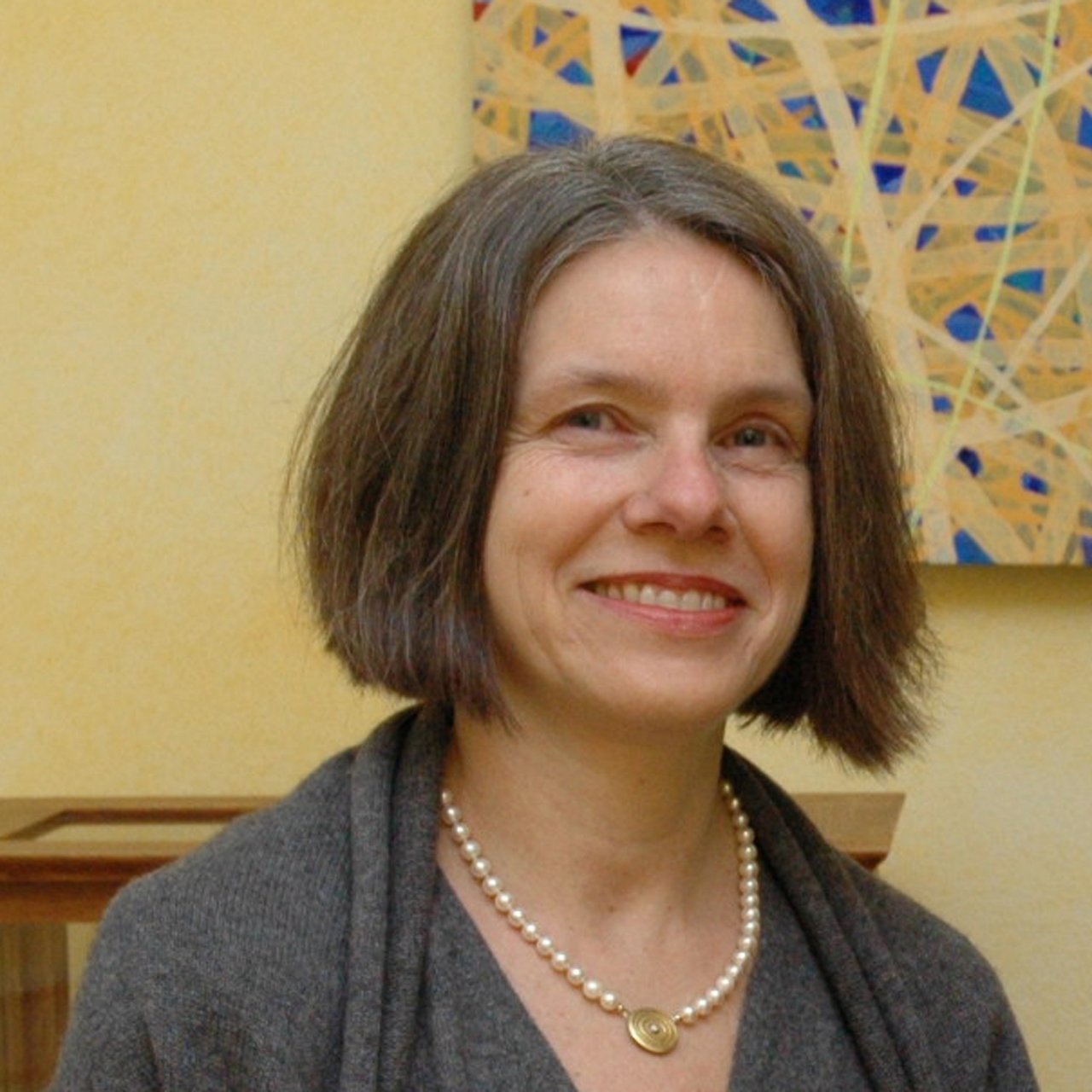
![[Translate to English:] Der ältere Sohn von Mona und Roy hält eine Schultüte in der Hand; die restliche Familie schaut ihn lächelnd an.](/fileadmin/_processed_/2/4/csm_Bildung_Arbeit_Motiv-Einschulung_1989859726.jpg)
![[Translate to English:] Bunte Kreide auf einer Tafel](/fileadmin/_processed_/0/c/csm_Anna_stock.adobe.com_211889196_0d4669eb02.jpg)
![[Translate to English:] Ein Junge im Grundschulalter liest in einem Buch.](/fileadmin/_processed_/e/f/csm_S.Kobold_stock.adobe.com_65021096_8a47e91ba9.jpeg)
![[Translate to English:] Ein Schulmädchen schreibt komplizierte Formeln an eine Tafel.](/fileadmin/_processed_/b/a/csm_tunedin_stock.adobe.com_65208128_b951f5d35b.jpeg)
![[Translate to English:] Eine Dozentin und ein Dozent arbeiten mit Laptop und Zettel an einem Schreibtisch.](/fileadmin/_processed_/f/6/csm_insta_photos_stock.adobe.com_420536036_9640773b14.jpeg)
![[Translate to English:] Eine Lehrerin ruft einen Schuljungen auf, der sich meldet.](/fileadmin/_processed_/7/b/csm_pressmaster_stock.adobe.com_455355253_2634ba95fa.jpeg)
![[Translate to English:] Mit einem Bleistift kreuzt jemand Kästen eines Fragebogens an.](/fileadmin/_processed_/0/0/csm_Gorodenkoff_stock.adobe.com_339221455_c8e4691a23.jpeg)
